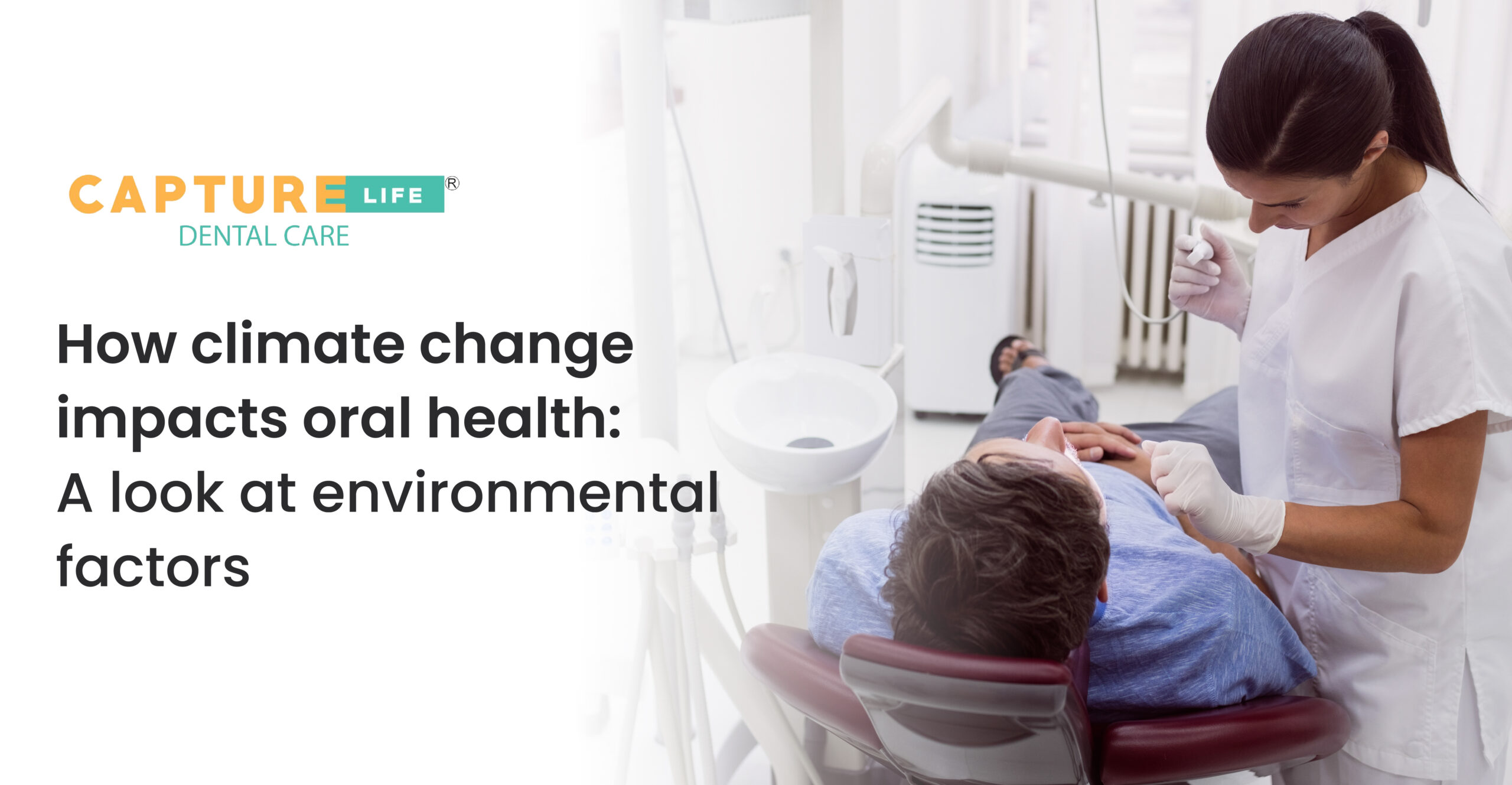
21 Jan Climate Change and Dental Care: What You Need to Know
How Climate Change Impacts Oral Health: A Look at Environmental Factors
The effects of climate change stretch far beyond rising sea levels and extreme weather. Among its lesser-known impacts is the potential to influence oral health in significant ways. From shifting environmental conditions to changes in diet and lifestyle, the repercussions of a warming planet touch nearly every aspect of human well-being.
At Capture Life Dental Care, we believe in staying ahead of emerging health challenges by fostering awareness and proactive care.
Let’s explore how climate change is affecting oral health and what you can do to protect your smile.
The Connection Between Climate Change and Oral Health
While it may not seem immediately obvious, climate change can affect oral health through:
1. Increased Exposure to Extreme Heat
- Rising temperatures can lead to dehydration, reducing saliva production.
- Saliva is essential for neutralizing acids, washing away food particles, and preventing cavities.
2. Air Quality Degradation
- Pollution from wildfires, smog, and dust storms can irritate oral tissues.
- Poor air quality is linked to gum inflammation and increased risks of periodontal disease.
3. Altered Dietary Patterns
- Climate-related changes in agriculture can lead to a shift in food availability.
- A reliance on processed, sugary foods due to reduced crop diversity can harm teeth.
4. Water Scarcity
- In some regions, climate change exacerbates water shortages.
- Limited access to clean water affects oral hygiene routines like brushing and rinsing.
5. Stress and Oral Habits
- Natural disasters and other climate-driven crises increase stress levels.
- Stress can lead to teeth grinding (bruxism), jaw pain, and weakened enamel.
Climate-Sensitive Conditions and Oral Health
- Dental Caries (Cavities)
- Reduced saliva flow due to heat and dehydration makes teeth more vulnerable to decay.
- Gum Disease
- Pollutants and inflammation from poor air quality contribute to periodontal disease.
- Oral Cancer Risks
- UV exposure due to ozone layer depletion may increase the risk of lip cancer.
- Enamel Erosion
- Changes in diet, particularly an increase in acidic foods and beverages, can wear down enamel.
What You Can Do: Tips to Protect Your Oral Health
- Stay Hydrated
- Drink plenty of water to counter dehydration and support saliva production.
- Use fluoridated water whenever possible to strengthen teeth.
- Practice Good Oral Hygiene
- Brush twice daily with fluoride toothpaste and floss regularly.
- Rinse with water after consuming sugary or acidic foods.
- Protect Your Lips
- Use lip balm with SPF to guard against UV damage, especially in sunny climates.
- Improve Indoor Air Quality
- Use air purifiers to reduce the impact of poor air quality on your oral and overall health.
- Reduce Stress
- Practice stress-relief techniques like meditation or yoga to prevent teeth grinding.
- Consider wearing a mouthguard if bruxism is a concern.
- Adapt Your Diet
- Incorporate fresh fruits, vegetables, and dairy products to strengthen teeth naturally.
- Limit processed and sugary foods that can accelerate tooth decay.
The Role of Dental Professionals
Regular dental visits are more important than ever in the face of climate-related challenges. Dentists can identify early signs of erosion, gum disease, or stress-related issues and recommend tailored solutions.
At Capture Life Dental Care, we take a holistic approach to oral health, addressing not just symptoms but also the underlying factors contributing to them.
Conclusion
Climate change is reshaping many aspects of our lives, including oral health. By understanding these impacts and adopting preventive measures, you can maintain a healthy, resilient smile.
If you’re concerned about how environmental factors may affect your oral health, book an appointment with Capture Life Dental Care. Our expert team is here to guide you toward better dental health, no matter what challenges come your way. Let us help you safeguard your smile against the changing tides of our environment.

